Signing of Project Development Agreement will jump-start critical infrastructure and access projects to advance Marcy NanoCenter at SUNYIT.
May 14th, 2010
Read more
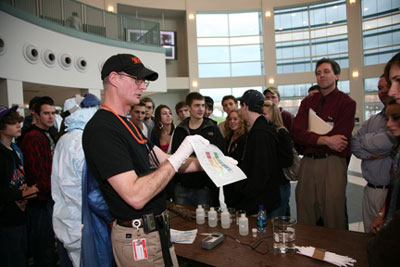 More than 300 elementary, middle- and high-school students received a firsthand look at the exciting science of nanotechnology when they attended NanoCareer Day at the College of Nanoscale Science and Engineering's Albany NanoTech Complex on May 13.
More than 300 elementary, middle- and high-school students received a firsthand look at the exciting science of nanotechnology when they attended NanoCareer Day at the College of Nanoscale Science and Engineering's Albany NanoTech Complex on May 13.
May 14th, 2010
Read more
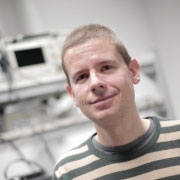 An Imperial College London physicist was presented with a prestigious prize for his research this week at a ceremony in Tel Aviv, Israel.
An Imperial College London physicist was presented with a prestigious prize for his research this week at a ceremony in Tel Aviv, Israel.
May 14th, 2010
Read more
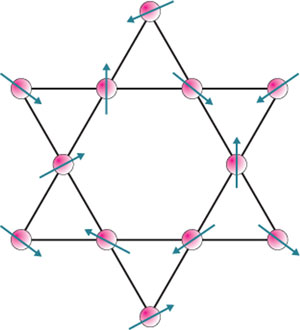 The presence of exotic particles, called spinons, might now be detectable in a magnetic field, providing insight into quantum magnet properties.
The presence of exotic particles, called spinons, might now be detectable in a magnetic field, providing insight into quantum magnet properties.
May 14th, 2010
Read more
Two University of Pennsylvania mathematicians have found solutions to a 140-year-old, 7-dimensional equation that were not known to exist for more than a century despite its widespread use in modeling the behavior of gases.
May 13th, 2010
Read more
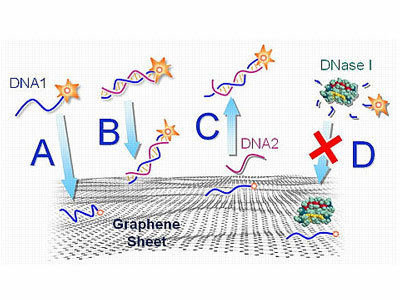 Nanostructure could help diagnose disease, facilitate gene therapy, more.
Nanostructure could help diagnose disease, facilitate gene therapy, more.
May 13th, 2010
Read more
Using nanotechnology and a patented signal enhancing technique developed at the University of Georgia, UGA researchers have discovered a rapid, sensitive and cost-effective method to detect and identify a number of rotavirus strains and genotypes in less than one minute with greater than 96 percent accuracy.
May 13th, 2010
Read more
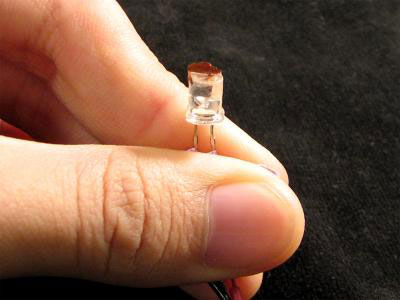 A tiny silicon chip that works a bit like a nose may one day detect dangerous airborne chemicals and alert emergency responders through the cell phone network.
A tiny silicon chip that works a bit like a nose may one day detect dangerous airborne chemicals and alert emergency responders through the cell phone network.
May 13th, 2010
Read more
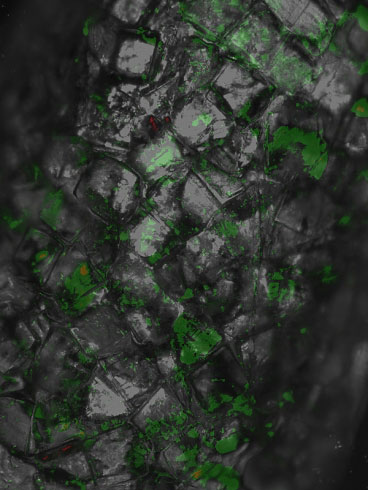 Tissue engineering has long held promise for building new organs to replace damaged livers, blood vessels and other body parts. However, one major obstacle is getting cells grown in a lab dish to form 3-D shapes instead of flat layers. Researchers have come up with a new way to overcome that challenge, by encapsulating living cells in cubes and arranging them into 3-D structures, just as a child would construct buildings out of blocks.
Tissue engineering has long held promise for building new organs to replace damaged livers, blood vessels and other body parts. However, one major obstacle is getting cells grown in a lab dish to form 3-D shapes instead of flat layers. Researchers have come up with a new way to overcome that challenge, by encapsulating living cells in cubes and arranging them into 3-D structures, just as a child would construct buildings out of blocks.
May 13th, 2010
Read more
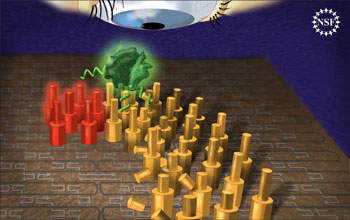 Researchers from Columbia University, Arizona State University, the University of Michigan and the California Institute of Technology (Caltech) have created and programmed robots the size of single molecule that can move independently across a nano-scale track.
Researchers from Columbia University, Arizona State University, the University of Michigan and the California Institute of Technology (Caltech) have created and programmed robots the size of single molecule that can move independently across a nano-scale track.
May 13th, 2010
Read more
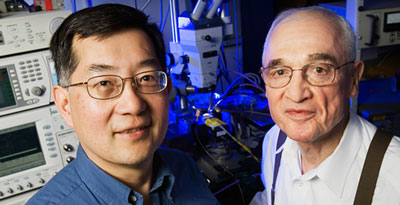 While the laws of physics weren't made to be broken, sometimes they need revision. A major current law has been rewritten thanks to the three-port transistor laser, developed by Milton Feng and Nick Holonyak Jr. at the University of Illinois.
While the laws of physics weren't made to be broken, sometimes they need revision. A major current law has been rewritten thanks to the three-port transistor laser, developed by Milton Feng and Nick Holonyak Jr. at the University of Illinois.
May 12th, 2010
Read more
Discovery opens the way toward biomimetic production of ultra-strong, elastic fibers.
May 12th, 2010
Read more
Nature and technology may seem worlds apart, but New York University Computer Scientist Dennis Shasha maintains that the natural world can bolster the capacity of today's most sophisticated machines. In Natural Computing: DNA, Quantum Bits, and the Future of Smart Machines, Shasha and co-author Cathy Lazere describe the work of 15 pioneers who have successfully harnessed nature's power in advancing technology.
May 12th, 2010
Read more
Chemists at New York University and China's Nanjing University have created a DNA assembly line that has the potential to create novel materials efficiently on the nanoscale.
May 12th, 2010
Read more
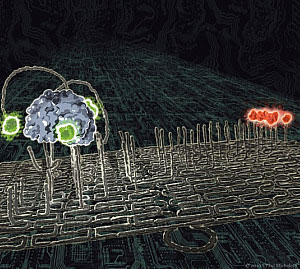 A team of scientists from Columbia University, Arizona State University, the University of Michigan, and the California Institute of Technology (Caltech) have programmed an autonomous molecular 'robot' made out of DNA to start, move, turn, and stop while following a DNA track.
A team of scientists from Columbia University, Arizona State University, the University of Michigan, and the California Institute of Technology (Caltech) have programmed an autonomous molecular 'robot' made out of DNA to start, move, turn, and stop while following a DNA track.
May 12th, 2010
Read more
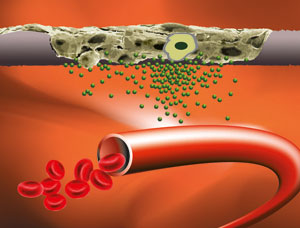 Stem cells stimulate regeneration of vascular tissue to allow for optimised integration of textile implants.
Stem cells stimulate regeneration of vascular tissue to allow for optimised integration of textile implants.
May 12th, 2010
Read more











 Subscribe to our Nanotechnology News feed
Subscribe to our Nanotechnology News feed